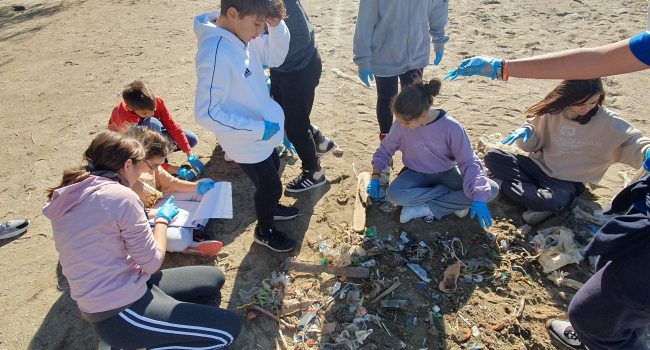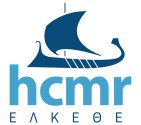- Creation of a network of committed schools and synergy with another laureate project, enabling new schools to become involved.
- Provision of sampling kits to schools, enabling them to independently collect macro- and microplastics on beaches.
- Two visits per school combining educational activities in the classroom and in the field.
- Training of students in the scientific method and collection of data on macroplastics, microplastics and biota (sea urchins), according to an adapted participatory science protocol.
- Analysis of samples in class using microscopes and characterisation of microplastics (size, colour, shape).
- Compilation of available data on the HCMR website.
- Organisation of an online seminar enabling students to share their results and discuss plastic pollution.
- High visibility of the project at local, national and European level, with participation in international events (Mediterranean lighthouse of the EU Mission Ocean and Waters 2030, EurOcean 2023).
- Continuation of the network of schools against plastic and search for new funding to expand it.

